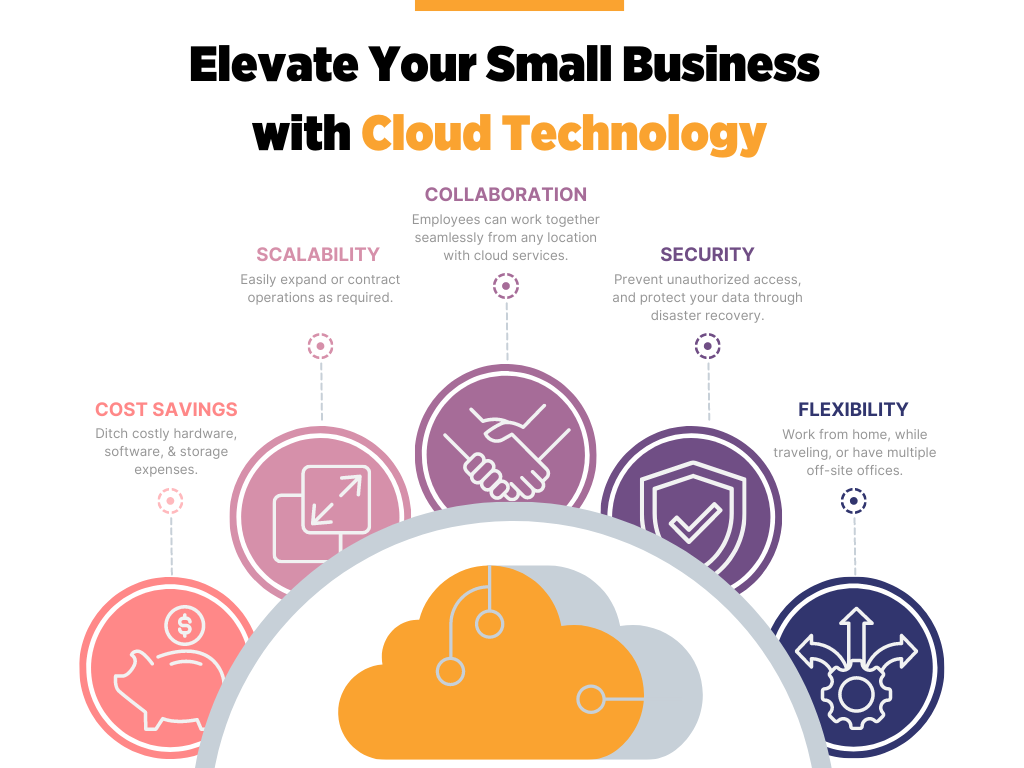
FRESNO, California – Cody Sarhan, Communications Specialist
Cloud networking has emerged as a game-changer for small businesses. The ability to access and manage data and applications from anywhere, at any time, has irrevocably fueled innovation and growth. However, amidst the many benefits, a significant concern looms large — security. As small businesses increasingly migrate their operations to the cloud, the importance of robust cloud networking security cannot be overstated.
“We believe we’re moving out of the Ice Age, the Iron Age, the Industrial Age, the Information Age, to the participation age. You get on the Net and you do stuff. You IM (instant message), you blog, you take pictures, you publish, you podcast, you transact, you distance learn, you telemedicine. You are participating on the Internet, not just viewing stuff.” — Scott McNealy, Former CEO of Sun Microsystems
The Rising Trend of Cloud Adoption
Before delving into the realm of security, it’s crucial to understand the trajectory of cloud adoption among small businesses. The pandemic saw a paradigm shift in the industry as more and more companies, big and small, shifted their business to the cloud. As of 2022, nearly 6 out of 10 businesses utilize cloud services in some capacity. That number is expected to go up drastically over the coming years as technology accelerates, and the benefits of cloud services increase. The ubiquity of cloud computing in the modern business ecosystem is undeniable and only getting more cost-effective, and more efficient.
“I don’t need a hard disk in my computer if I can get to the server faster… carrying around these non-connected computers is byzantine by comparison.” — Steve Jobs, Late Chairman of Apple (1997)
In a recent survey, Deloitte concluded that small and medium businesses that used cloud computing made 21% more profit and grew 26% faster.
Learn more: How Xobee can elevate your business with cloud technology
How Poor Cloud Security Impacts Small Businesses
While cloud networking empowers small businesses with agility and scalability, it also introduces a new set of security challenges. Cybercriminals are well aware that small businesses might have limited resources devoted to cybersecurity, making them potential targets. A recent study by Verizon’s Data Breach Investigations Report indicated that 28% of breaches involved small businesses. This alarming figure underscores the pressing need for fortified security measures.
The aftermath of a security breach can be financially crippling for a small business. Not only is there the cost of data recovery and system restoration, but also potential legal and regulatory penalties, as seen with the implementation of data protection regulations like the General Data Protection Regulation (GDPR) and the California Consumer Privacy Act (CCPA). According to IBM’s Cost of a Data Breach Report in 2020, the average cost of a data breach for a small business was approximately $3.86 million.
Key Elements of Cloud Networking Security
- Data Encryption. Utilizing encryption techniques ensures that even if unauthorized access occurs, the stolen data remains indecipherable. End-to-end encryption, where data is encrypted from its point of origin to its final destination, offers an extra layer of protection.
- Multi-Factor Authentication (MFA). MFA bolsters user authentication by requiring multiple forms of verification before granting access. This prevents unauthorized users from gaining entry even if they possess the correct password.
- Regular Updates and Patch Management. Outdated software and systems are often exploited by hackers. Regular updates and patch management help to seal potential vulnerabilities and enhance overall security.
- Threat Detection and Prevention. Regular monitoring enables the early identification of suspicious activities, such as unauthorized logins or data transfers, enabling timely intervention before they escalate into major security breaches.
- Vulnerability Management. By monitoring system performance and software behavior, businesses can quickly identify and address vulnerabilities that could potentially be exploited by cybercriminals.
- Incident Response. Effective incident response relies on real-time data. Continuous monitoring provides the information necessary to understand the nature and scope of an incident, allowing for a quicker and more targeted response.
- Compliance and Auditing. Many industries have regulatory compliance requirements that necessitate regular monitoring and reporting of security practices. Consistent monitoring helps businesses demonstrate compliance and maintain their reputation.
- Employee Training. Human error is a significant factor in security breaches. Educating employees about best practices, such as recognizing phishing attempts and safeguarding sensitive information, is paramount.
Learn more: How Xobee can protect your small business from cyber threats
How Xobee Can Help You Embrace Security as a Competitive Edge
Beyond mitigating risks, robust cloud networking security can be a competitive advantage for small businesses. It acts as both a sword and a shield in defense against cybercriminals. Xobee Networks demonstrates a commitment to safeguarding client data through our state-of-the-art services, commitment to trust, and outstanding expertise in the field.
At Xobee, your data is secured in our Level 3 datacenter and secured by 3-factor authentication. You will never have to worry about data loss due to physical theft, fire, or vandalism.
For more information about how Xobee Networks can help elevate your business with cloud services, contact one of our highly skilled technicians today.
Xobee Networks now has engineers servicing clients within Fresno, Clovis, Madera, San Jose, Sacramento, San Francisco & The Bay Area, Los Angeles, Santa Monica, Las Vegas, Bakersfield, San Diego, San Luis Obispo, Anaheim, Palm Springs, and more.
Cody Sarhan | Communications Specialist, Xobee Networks

